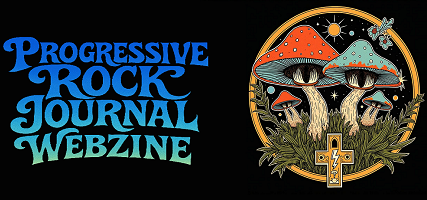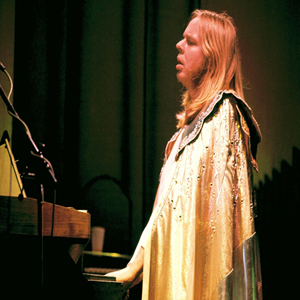Few artists in the history of music can claim a career as vast and influential as Rick Wakeman CBE. Legendary Yes keyboardist, solo virtuoso, and composer of some of Progressive Rock’s most iconic works, Wakeman has been shaping the soundscape of modern music for over five decades. From his early days with The Strawbs to defining the majestic Yes sound, and through his landmark solo works – “The Six Wives of Henry VIII,” “Journey to the Centre of the Earth,” and “King Arthur” – his vision and virtuosity have left an indelible mark.
Now, with the release of “Melancholia” on October 17th via Madfish, the final chapter in his remarkable piano trilogy, Wakeman turns inward, offering a deeply personal and introspective collection of solo piano suites. In this interview, he reflects on the inspiration behind the album, his decades-long journey as a keyboardist, and the enduring power of music in both personal and collective memory.
I. On the New Album: Melancholia
Rick, “Melancholia” is described as one of the most meaningful suites you’ve ever written. Can you share the emotional journey behind this album?
I certainly couldn’t have put this suite of music together 20, 30 or even 40 years ago. It is an album that I realise I could only have made with life experience – a life full of emotions and feelings over so many years. I have truly experienced every single one of the feelings expressed in the music.
The title-track, inspired by your wife Rachel, seems very personal. How did her encouragement shape the overall direction of the album?
A great deal – She is a tremendous support in all I do and musically is a great encouragement as I have a lot of self doubt that creeps in to my head which is not healthy. She helps to sweep these thoughts away and bring back my belief.
This album completes your piano trilogy. How do you feel “Melancholia” contrasts with “Piano Portraits” and “Piano Odyssey” in terms of style and personal expression?
The three never began life as a trilogy but do all have links. however, ‘Melancholia’ is the first piano concept album i have ever undertaken and it is a very personal collection of piano pieces.
The track names, like “Alone,” “Sea of Tranquility,” and “Watching Life,” evoke very vivid imagery. How do you approach translating emotions into music on this album?
I really found that strong emotions brought out melodies and musical ideas i didn’t know were there.
Could you describe your composition process for this album? Did you follow a strict plan or let the music flow organically from your mood and reflection?
The music seemed to flow and the titles gave me vivid imagination to work with and visualise whilst composing at the piano. It’s hard to describe.
You’re releasing multiple formats, including a CD/DVD set with a short film. How important is the visual element in complementing your music?
Very important – I always think of music as being visual anyway. From a young boy I have always created pictures in my mind to all music and this has never left me. Performing on stage too, I visualise a lot whilst playing.
II. Reflection on Your Career
Looking back at your early days with The Strawbs, what experiences or lessons shaped your approach to composition and performance?
I think you subconsciously embrace good musical events that happen in your life and sometimes without realising it, they can reappear without warning.
Joining Yes marked a pivotal moment. What was it like stepping into the Progressive Rock spotlight at that time, and how did it influence your musical vision?
Yes has played a huge part in my life. They had a lot to offer me musically and I’d like to think that I gave them in return some music and ideas that helped shape the albums I did with them.
Your solo masterpieces – “The Six Wives of Henry VIII,” “Journey to the Centre of the Earth,” and “King Arthur” – are still celebrated today. How did each of these projects challenge you creatively?
I never thought of them as a challenge at the time, but looking back, you’re right – they were! It was just so exciting at the time, and indeed these albums are still exciting to me, now especially to perform.
Over the decades, how have your instruments evolved? How does playing modern keyboards and pianos differ from your early days with analog synthesizers?
A lot, but I have a strict rule that I won’t use a new keyboard unless the music demands it. Just because there is a new sound floating around, doesn’t mean you have to use it.
Can you recall a particularly memorable live performance, either with Strawbs, Yes or solo, that still resonates with you today?
In 1974 – the royal festival hall and ‘Journey To The Centre Of The Earth’ – It was absolutely magical.
Collaboration has been a constant throughout your career. Are there partnerships or musicians who had an especially profound impact on your development?
I enjoyed working with Sir Tim Rice and still do. As regards composition, I suppose there isn’t an awful lot of that, although writing and recording ‘The Living Tree’ with Jon Anderson was pretty special.
III. Personal Insights and Philosophy
Music has been a source of healing for you, as seen in “Melancholia.” How has your relationship with music changed over time, personally and professionally?
It means the world to me and will do until I depart this mortal existance. The relationship is very personal and has grown over the years. I feel so blessed to have this God-given gift.
With a career spanning over fifty years, what drives you to keep composing and performing?
Because I’ll never finish. My tombstone will read: ”It’s not fair, I haven’t finished yet!”
How do you see your role in mentoring or inspiring younger musicians today?
I’d like to think i’ve encouraged young musicians and perhaps even a few older ones too because of my music.
If you could give one piece of advice to aspiring keyboardists about the art of storytelling through music, what would it be?
Understand the story and always ask yourself – Will the listener understand what i am trying to achieve here?
IV. Legacy and Future
When you reflect on your career, what are the moments or achievements you feel most proud of?
Waking up in the morning and still having the ability to play the piano and a musical brain that still i find inspiring.
Are there musical territories you’ve yet to explore, or ideas you hope to tackle in the coming years?
Lots and lots. I’m working on four different projects at the moment, all of which will reach fruition over the next couple of years. If you ask how exciting is that for me, i’d say very!
Finally, with “Melancholia” completing a trilogy, what does the future hold for Rick Wakeman – both musically and creatively?
I wish I knew. it’s been a long and rewarding journey and it seems the road is never ending – And long may that be the case!
Rick Wakeman’s journey is a testament to the transformative power of music. From epic concept albums to intimate piano suites, his work continues to resonate with both long-time fans and new generations. With “Melancholia,” Wakeman invites us once more into his world – a space where virtuosity, emotion, and storytelling converge at the piano, affirming his status as one of music’s most enduring visionaries.

